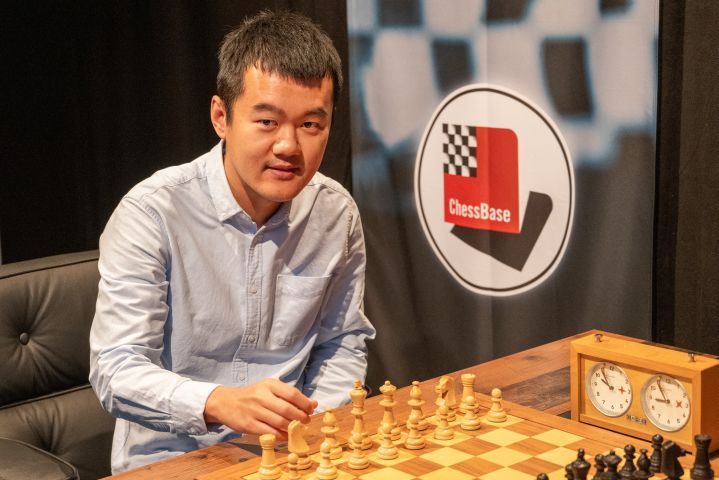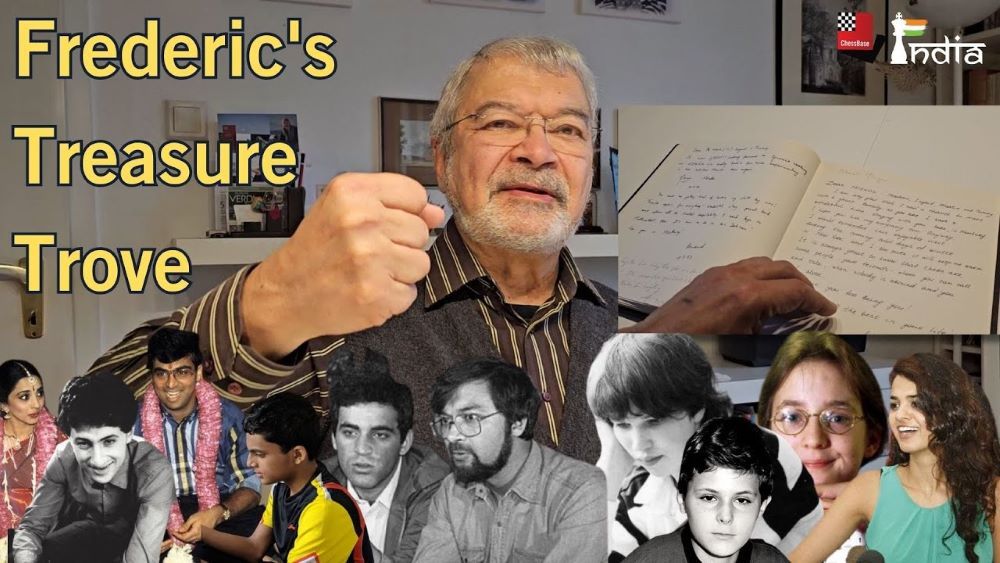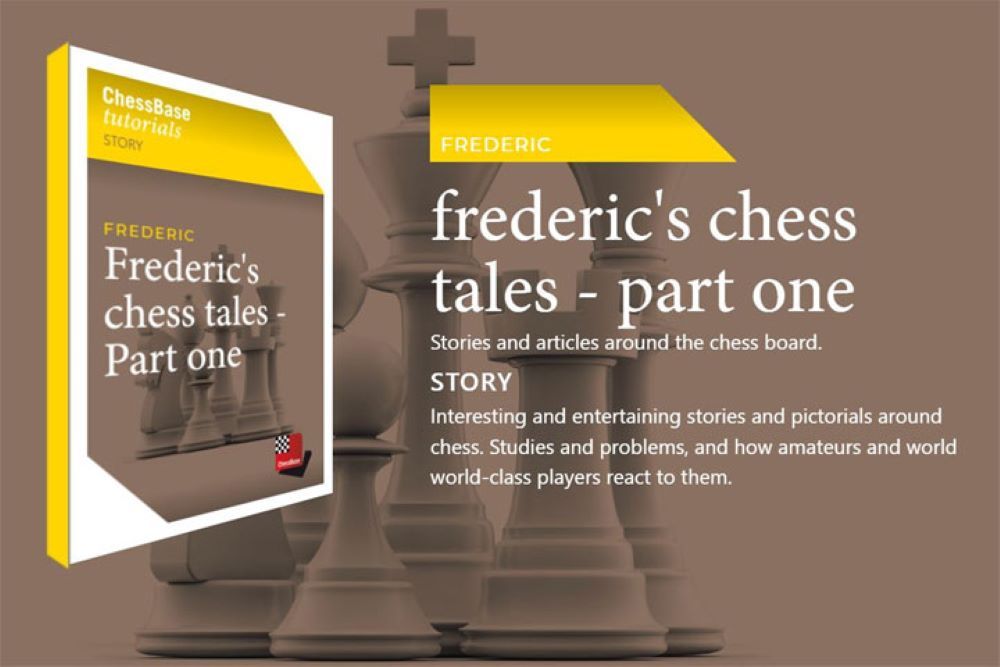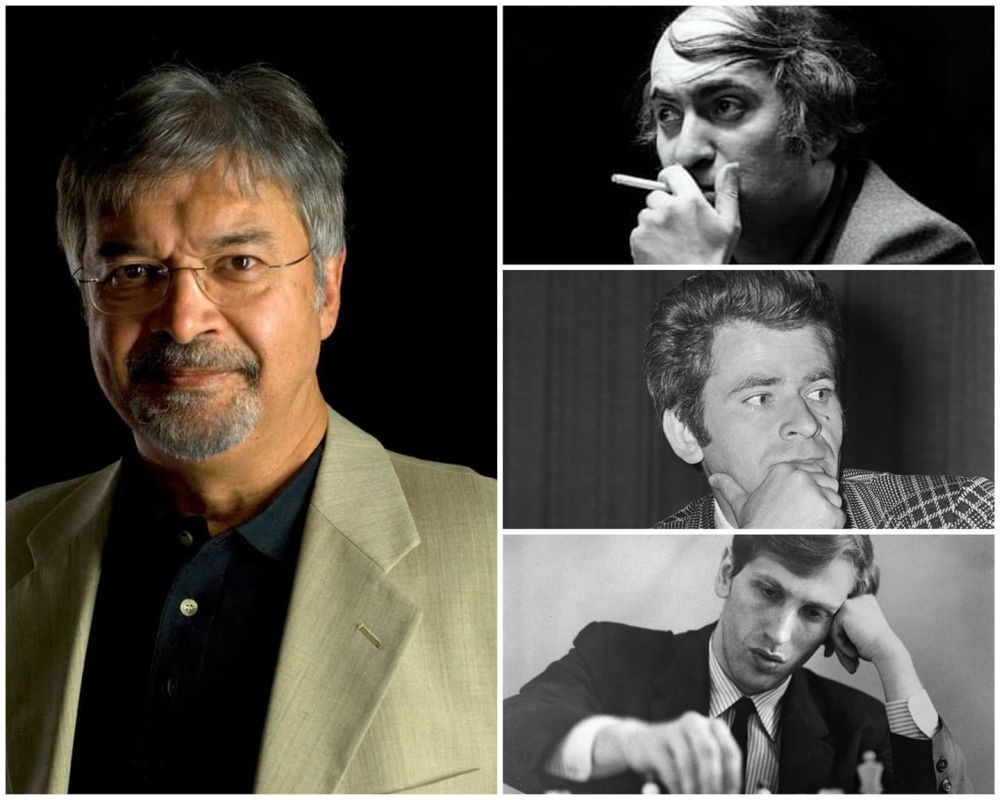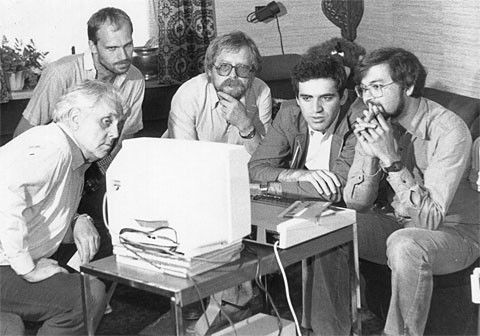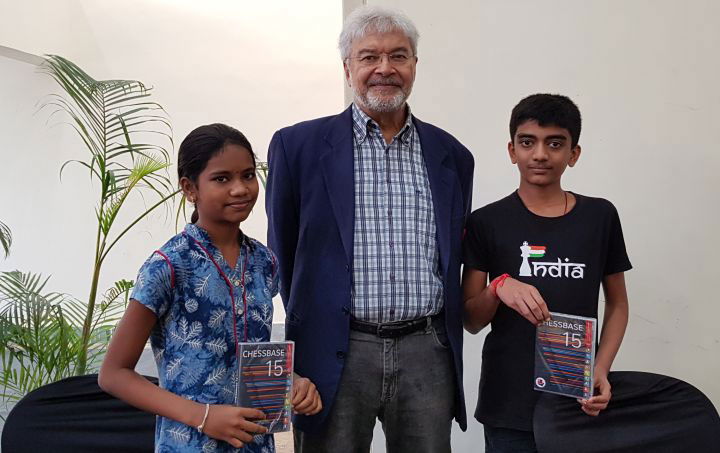Super-talents and the secret of success
India is beginning to seriously dominate the chess world, the country is on a path to becoming the super-power in the game. This is deeply gratifying – especially for the people involved in the training and advancement of the young stars. Frederic Friedel describes how the new group of super-talents is making its way to the very top. Other countries should take this as an example!
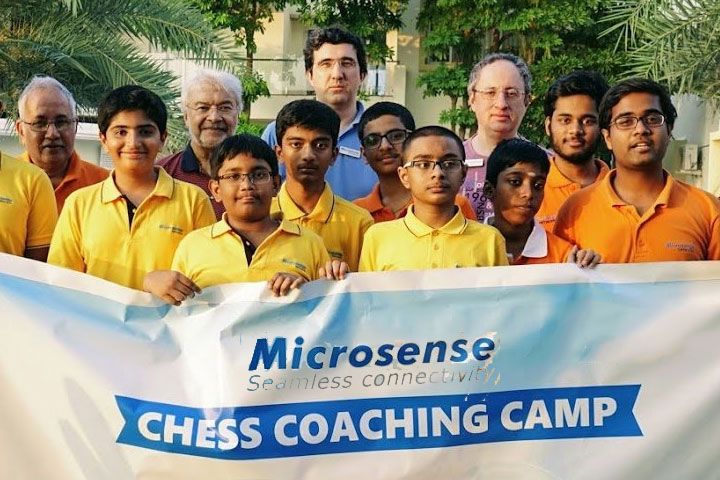
Let us go back a few years. On January 29th 2019 the 14th World Chess Champion Vladimir Kramnik decided to retire from competitive chess. It was the end of an era. Vlady is a close friend, and I convinced him that he should consider training super-talents. Sagar Shah described what transpired.
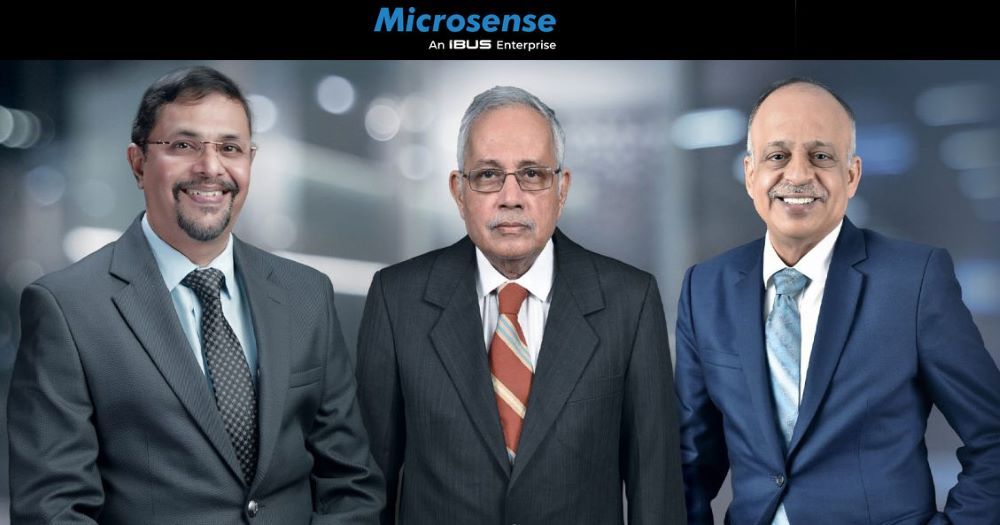
For our enterprise we needed a sponsor. After a few months of searching, Sagar, founder and CEO of ChessBase India, found Microsense Networks Private Limited. Mr. Kailasanathan, the Managing Director of the company (middle in the picture above), and a former Tamil Nadu Chess State Champion (in 1972), agreed to fund the project to create world-class chess players in the years to come.
In August 2019 we arranged a training camp with Vladimir Kramnik and six talents of Indian chess in Chens Sur Leman near Geneva. It was a great success, the kids all enjoyed it tremendously. Vladimir stayed in touch with the students, commenting on their games and giving them further advice. It was his level of involvement in the project and subsequent results of the students that convinced Kailasanathan and Microsense of the need to continue these camps.
In January 2020 a second camp was organized, this time in Chennai, India. This time there were twelve trainees, and two illustrious teachers: Vladimir and former World Championship challenger Boris Gelfand, who, like Vladimir, is one of my oldest and best friends in chess.
I attended both Microsense training camps and was able to see first-hand how things developed. I described it in two reports at the time, one from Chens Sur Leman, and one from the Chennai training camp, where the following photos were taken:
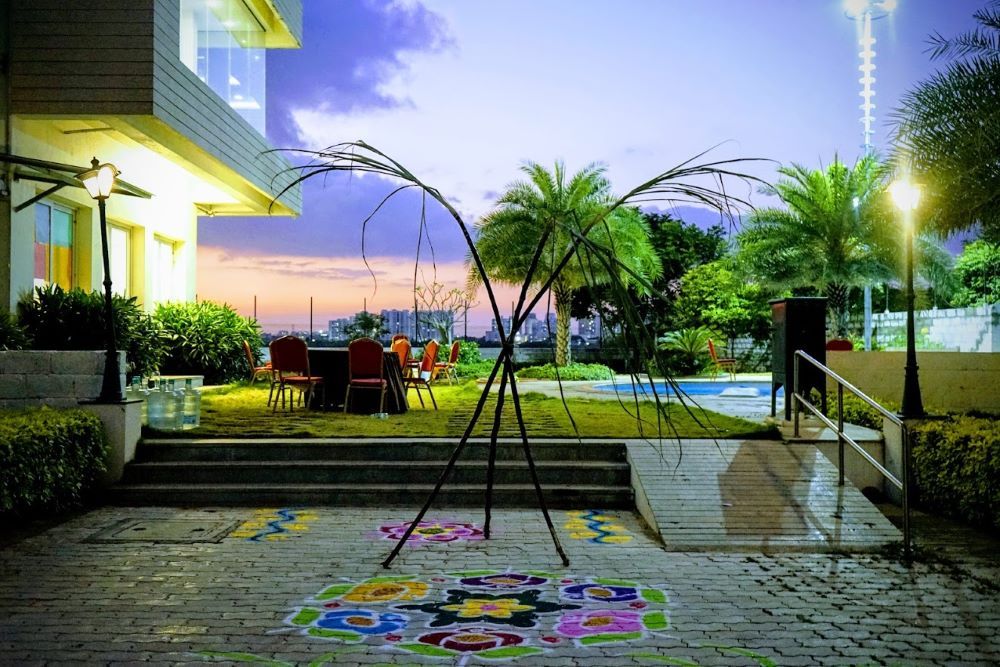
During the second session I was asked by an Indian TV journalist what I expected from these training camps. I said I predicted that in five years at least two of the top ten players in the world would be Indians, and in ten years at least three or four. "Isn't that a bit unrealistic?" the journalist asked. "No," I replied, "do you want me to tell you their names right now?"
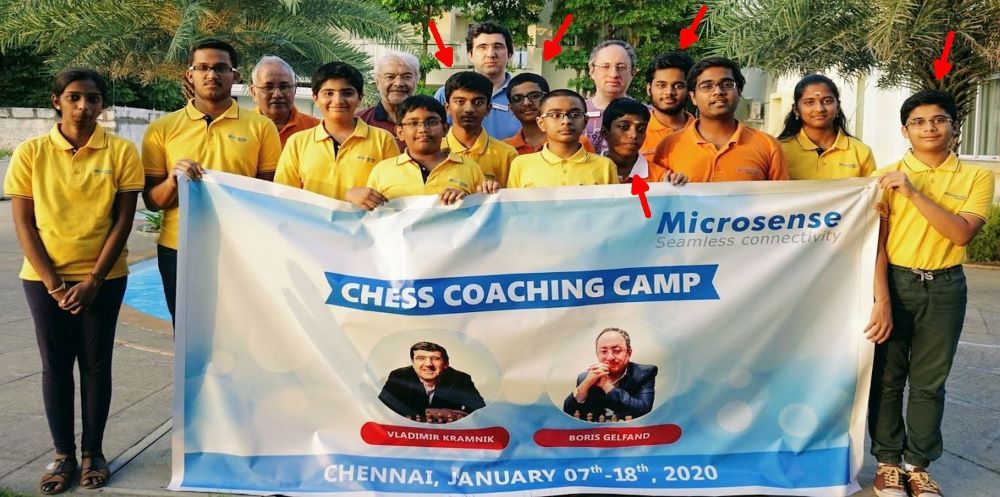
Last week the Qatar Masters ended. Of the 158 participants, there were 59 GMs and 52 IMs. Here is a partial breakdown of the 31 different countries from which they came:
| UAE - 1 | ARM - 1 | NOR - 2 |
| AUS - 2 | POL - 2 | FID - 3 |
| GER - 3 | TUR - 3 | NED - 3 |
| IRI - 3 | KAZ - 5 | AZE - 5 |
| CHN - 7 | USA - 9 | UZB - 14 |
| IND - 75 |
And what did the final standings look like?
| Rk. | SNo | Name | Typ | sex | Gr | FED | RtgI | Pts. | TB1 | TB2 | ||
| 1 | 19 | GM | Yakubboev, Nodirbek | UZB | 2616 | 7 | 2 | 2775 | ||||
| 2 | 5 | GM | Abdusattorov, Nodirbek | U20 | UZB | 2716 | 7 | 0 | 2765 | |||
| 3 | 13 | GM | Narayanan.S.L, | IND | 2651 | 6,5 | 0 | 2792 | ||||
| 4 | 12 | GM | Sindarov, Javokhir | U20 | UZB | 2658 | 6,5 | 0 | 2766 | |||
| 5 | 2 | GM | Nakamura, Hikaru | USA | 2780 | 6,5 | 0 | 2748 | ||||
| 6 | 6 | GM | Erigaisi, Arjun | U20 | IND | 2712 | 6,5 | 0 | 2743 | |||
| 7 | 7 | GM | Maghsoodloo, Parham | IRI | 2707 | 6,5 | 0 | 2727 | ||||
| 8 | 4 | GM | Gukesh, D | U20 | IND | 2758 | 6,5 | 0 | 2674 | |||
| 9 | 23 | GM | Paravyan, David | FID | 2599 | 6 | 0 | 2703 | ||||
| 10 | 20 | GM | Karthikeyan, Murali | IND | 2611 | 6 | 0 | 2689 | ||||
| 11 | 3 | GM | Giri, Anish | NED | 2760 | 6 | 0 | 2680 | ||||
| 12 | 31 | GM | Shimanov, Aleksandr | FID | 2566 | 6 | 0 | 2665 | ||||
| 13 | 16 | GM | Salem, A.R. Saleh | Ar. | UAE | 2632 | 6 | 0 | 2658 | |||
| 25 | GM | Jumabayev, Rinat | KAZ | 2585 | 6 | 0 | 2658 | |||||
| 15 | 18 | GM | Puranik, Abhimanyu | IND | 2618 | 6 | 0 | 2654 | ||||
| 16 | 1 | GM | Carlsen, Magnus | NOR | 2839 | 6 | 0 | 2650 | ||||
| 17 | 24 | GM | Sethuraman, S.P. | IND | 2598 | 6 | 0 | 2642 | ||||
| 35 | GM | Kaidanov, Gregory | USA | 2554 | 6 | 0 | 2642 | |||||
| 19 | 8 | GM | Van Foreest, Jorden | NED | 2707 | 6 | 0 | 2628 | ||||
| 20 | 11 | GM | Oparin, Grigoriy | USA | 2681 | 6 | 0 | 2606 |
As you can see, six of the top twenty are from India. Their average age: 23 years. I was in constant (Skype) contact with the youngest, Gukesh, 17, Elo 2758, who was having a bad tournament: he drew his first game against a 2432 player, and lost two, one to compatriot Narayanan. "This is quite bad," he messaged me, "but I'm focusing on finding my form!" Bad? He won all the rest of his games and ended just half a point behind the winner – tied with Nakamura and ahead of Giri and World Champion Carlsen.
How can we explain the remarkable success of the Indian players? Talent, of course. But why are there so many super-talents in one country? Why are so many moving to the very top? One part of an answer, as described above, is Sagar and Kailash, Vlady and Boris – they did it! And of course Viswanathan Anand, who in 1988 became India's first grandmaster, and then went on to become a five-time World Champion (2000, 2007, 2010, 2012, 2014). Hinduism suddenly had 34 instead of 33 main gods – Vishy was added as the God of Chess. Every child in India wanted to grow up to be like him, become a world-class chess grandmaster.
Anand remained India's top player until the ripe age of 53. In August 2023 Gukesh overtook him in the rating list, advancing to number eight in the world. And there are a couple more from our training camp above who are poised to join him at the top. Here's a meme that nicely visualizes what is in store:
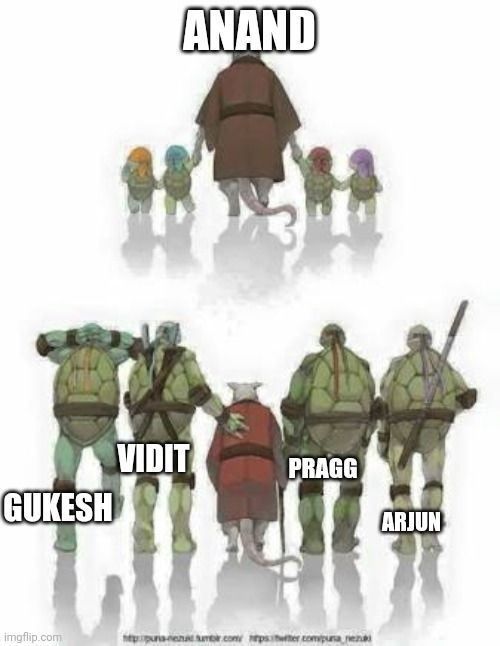
Another contributing factor is ChessBase. All of the rising stars of chess have used this database from early childhood to study the game. They had access to a learning tool that no generation before them had. They had to procure books and try to study from them. Possible, but much, much slower. I have watched today's talents mining knowledge from over ten million high quality games, scanning through them at a rate of fifty per hour.
One other factor, in my view, is the Indian mentality of unconditionally fostering a talent you spot in a child – if you can afford it. I have seen a dozen Indian fathers give up their professions to accompany their sons to chess events all over the world, and a dozen families spend most of their income on travel, trainers and seconds.
In the next few years we will see what all this will all lead to. Keep your seat belts fastened!
About the Author
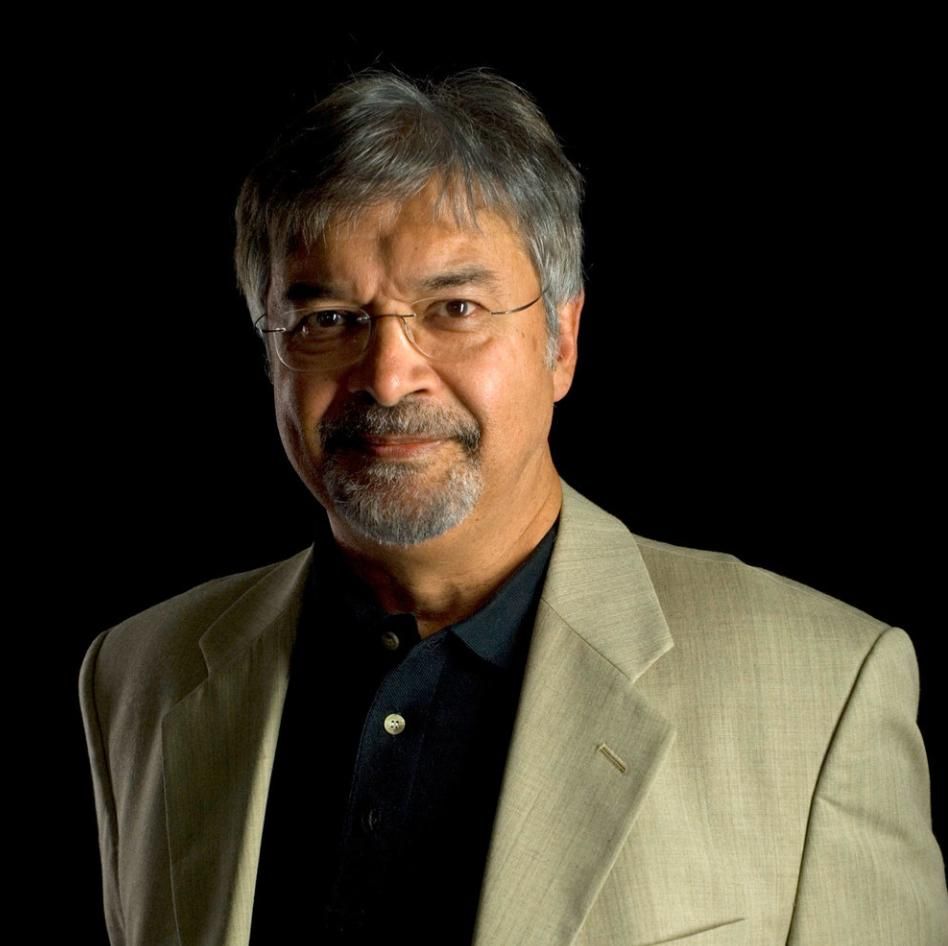
Editor-in-Chief emeritus of the ChessBase News page. Studied Philosophy and Linguistics at the University of Hamburg and Oxford, graduating with a thesis on speech act theory and moral language. He started a university career but switched to science journalism, producing documentaries for German TV. In 1986 he co-founded ChessBase.

